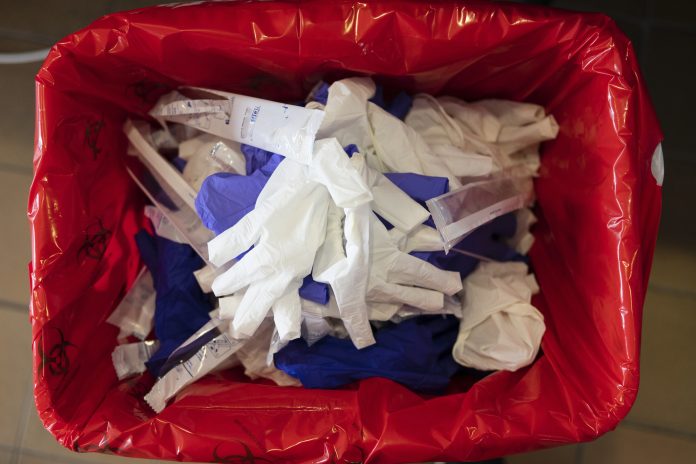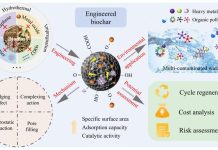Swedish researchers at Chalmers University have revealed a new technology set to transform the recycling landscape, particularly for healthcare waste
After growing global concerns over the environmental impact of disposable healthcare items, worsened by the COVID-19 pandemic, the team at Chalmers has pioneered a method known as thermochemical recycling.
The thermochemical recycling method
Unlike the usual recycling methods, thermochemical recycling employs a process called ‘steam cracking’ to break down used plastics, such as face masks and gloves, into their molecular components.
This new approach operates at temperatures up to 800 degrees Celsius, effectively converting plastic waste into gas. From this gas, essential building blocks for new plastics can be extracted, offering a sustainable alternative to traditional incineration or landfill disposal.
Dr. Martin Seemann, Associate Professor at Chalmers, describes the technology as akin to a “thermal sledgehammer,” not only obliterating plastic molecules but also ensuring the destruction of harmful microorganisms that may be present on medical waste. This dual benefit addresses both environmental concerns and potential health risks associated with discarded medical items.
Medical plastics
By using thermochemical recycling, the research team demonstrates a feasible path toward a circular economy for medical plastics. This approach circumvents current limitations in recycling materials due to contamination and stringent purity requirements for medical-grade products. Instead, it reintroduces valuable carbon and hydrocarbon compounds back into the production cycle, reducing reliance on virgin plastics derived from fossil fuels.
The successful trials conducted at Chalmers’ test facilities shows the technology’s promise. Projects have included processing mixed hospital waste compositions, proving the method’s adaptability and effectiveness across various plastic types and even cellulose.
Environmentally friendly healthcare
While the technology shows huge potential, scaling it up requires concerted efforts across industries and regulatory frameworks. Collaboration between healthcare providers, waste management sectors, and the chemical industry will be crucial in establishing functional recycling pathways.
Supportive policies and incentives are needed to encourage widespread adoption of thermochemical recycling, ensuring its viability on a commercial scale.
In Sweden, where environmental sustainability is a cornerstone of policy-making, there is particular interest in integrating thermochemical recycling into existing chemical clusters like Stenungsund. However, there are some challenges including the need for substantial waste volumes to justify large-scale investment in recycling facilities.
Advancements in thermochemical recycling offer hope for a cleaner, more sustainable future. By transforming medical waste into valuable resources, Sweden’s innovative approach not only mitigates environmental impact but also sets a precedent for global efforts in waste management.











